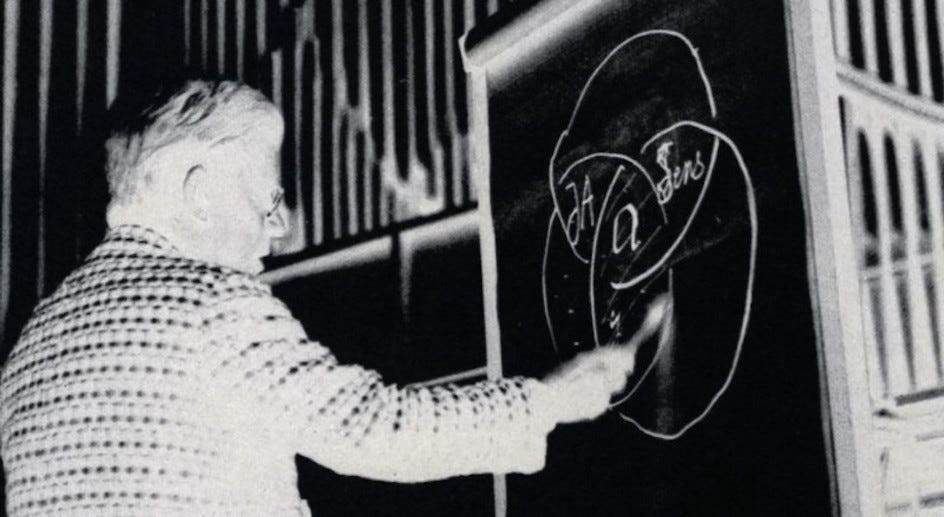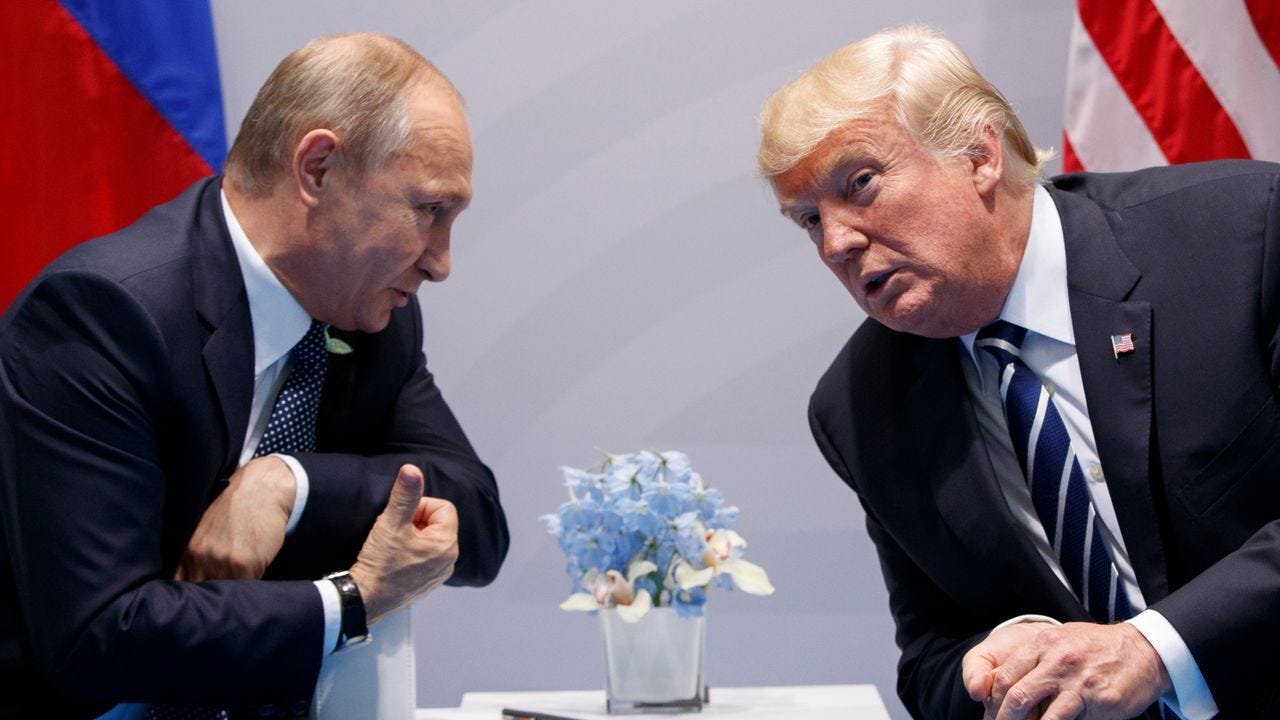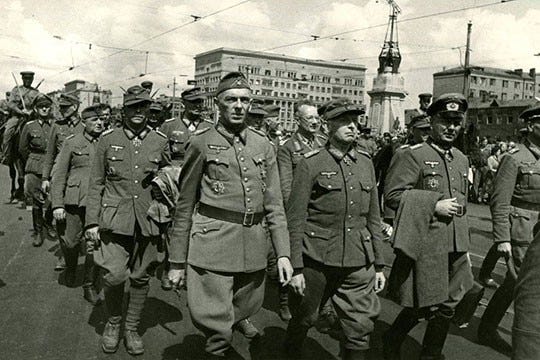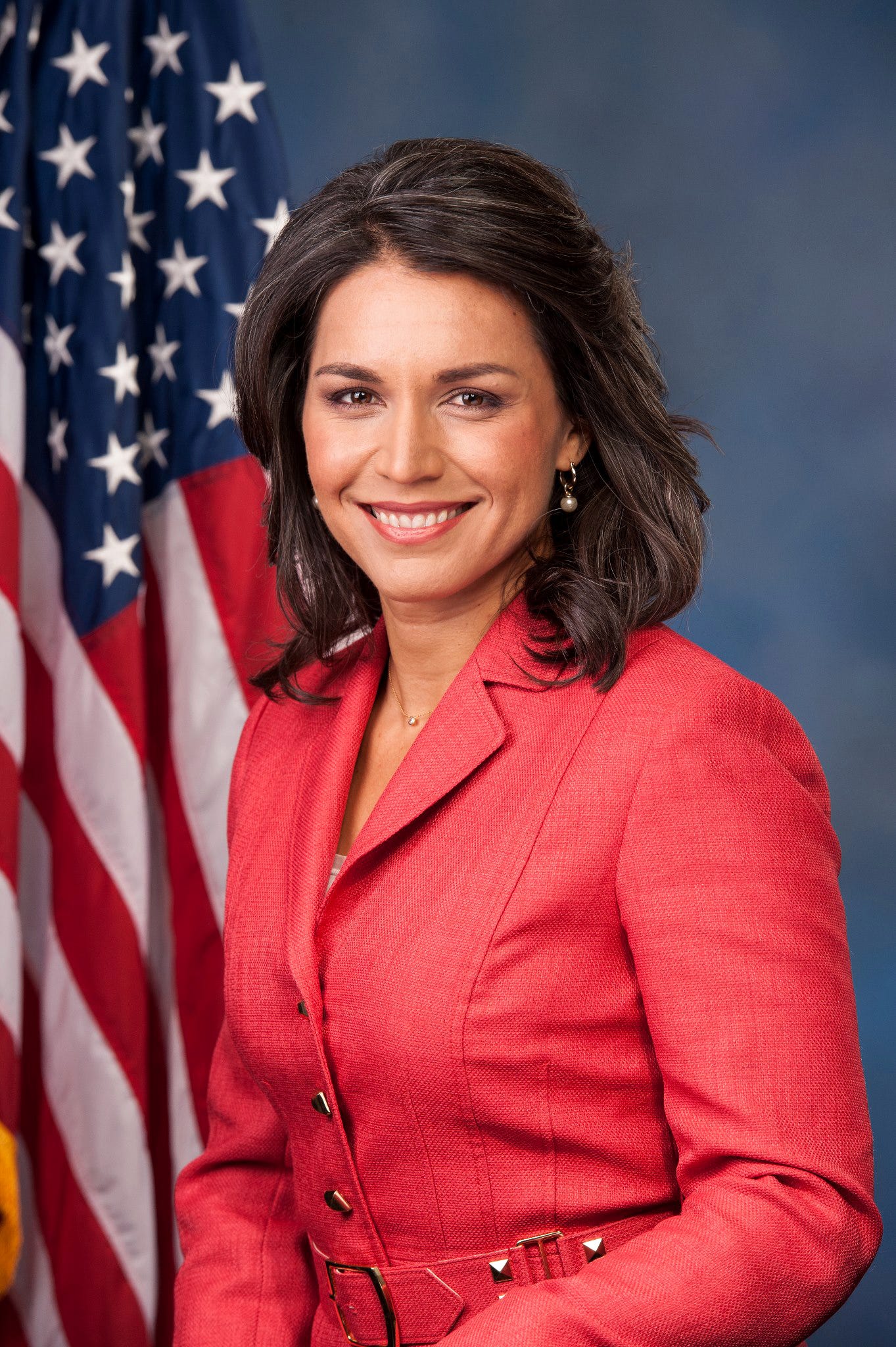The Cleaving West
Once bound as the Collective West, the West now cleaves—divided between nostalgia and reality, between clinging and rupture, as the vanquished prepare to march again under an ominous Big Three gaze.
Language, like history, is restless. It binds and betrays, reveals and obscures. It is a current that carries meaning forward even as it erodes its own foundations. Some words hold this tension within them, poised between union and division—like a rope pulled taut, ready to snap.
One such word is cleave. To cleave is to split apart, to sever what was once whole. Yet to cleave is also to cling, to adhere, to refuse separation. One word, two opposing meanings—a paradox inscribed into language itself. It is a word fit for an age of rupture, a West that was once collective now unravelling at the seams, still grasping at old bonds even as they fray.
French psychoanalyst and philosopher Jacques Lacan, known for his work on language and the unconscious, delighted in the slippages of meaning, where words echo one another yet pull in opposite directions, revealing the fractures beneath conscious thought. His fascination with homophony—words that sound alike but hold different meanings—was more than linguistic play. It was a way of exposing how language shapes our reality, how authority is both named and negated in the same breath.
One of Lacan’s most revealing homophonic word plays is le nom du père (“the name of the father”) and le non du père (“the no of the father”). More than a pun, while being indistinguishable in spoken French, this opposition captures a fundamental tension at the heart of power. Le nom du père represents the symbolic order—the structures of law, tradition, and legitimacy that bind a subject to the social fabric. But le non du père, the father’s refusal, is just as defining. Directed at the child, it is the boundary drawn, the prohibition that frustrates yet structures, denying immediate gratification but making meaning possible. Without the father’s non, there is no order—only chaos, an endless clinging to illusions of wholeness.
This same homophonic dynamic plays out in English, where a phrase from mid-century Americana—Father Knows Best—once embodied an unquestioned faith in paternal authority. The patriarch, wise and steady, dispensed guidance, enforced order, and, crucially, was always right.

But today, in the second mandate of President Donald Trump, the geopolitical father—the United States—has taken a different stance: Father No’s Best. No longer the unquestioned guide, Washington has become the figure who withholds, who refuses, who lays down the law—especially to America and Europe’s neoconservative establishment’s vision of endless war in Ukraine. Under Trump, the United States is pulling away from its post-war role as Europe’s protector and enforcer, its non du père ringing across the Atlantic like a firm rebuke to a wayward child: Enough. No more.
The West now finds itself caught in its own linguistic paradox. For decades, it spoke of itself as a unified entity—the Collective West, bound by shared values and common purpose. But words deceive, and reality intrudes. The father—the United States—has spoken its non, its refusal, and in doing so, has laid bare the fractures long hidden beneath the rhetoric of unity.
The Collective West is no more. In its place stands the Cleaving West—both splitting and clinging, torn between meanings, unable to decide which will define its fate.
Breaking Bonds
This rupture is nowhere more evident than in the events of the past week. On February 12, at a NATO meeting, the U.S. Secretary of Defense signalled a strategic shift Europe had long dreaded: America was turning its attention to Asia. The era of unchallenged U.S. security guarantees was over. Europe, long dependent on American military power, would have to fend for itself. The future belonged to those who could stand on their own. Hegseth’s words were not merely a shift in tone but a warning to Europe that its long holiday from history was ending.
On February 13, following weeks of public head fakes and private preparations, US President Donald Trump placed a telephone call to Russian President Vladimir Putin. Without consulting Europe or informing Ukraine, Trump initiated what he insists will be a negotiation process that will end the war. He has broadly hinted that neither Ukraine nor Europe will have a seat at the table. The outrage from Brussels was immediate, the fury from Kyiv incandescent. The father has spoken, but after years of indulgence—years in which they mistook dependence for agency—the children refuse to listen, only now realizing that the final word was never truly in Europe.
Then came February 14, at the Munich Security Conference, Vice President JD Vance stood before the assembled dignitaries and spoke not of Russia or China, but of an enemy closer to home. The greatest threat to European security, he declared, was not external—it was internal. He pointed to an increasingly authoritarian bureaucracy that had overturned an election in Romania and warned of similar threats in Germany. He denounced Europe’s lax approach to migration, citing terrorist attacks that had become commonplace. He railed against Europe’s erosion of free speech, its suppression of dissent in the name of a fragile liberal order. The speech sent shockwaves through the European elite. This was not the America they had known. This was not the father who had once soothed them with promises of unity and protection.
With each refusal—of unlimited arms for Ukraine, of eternal security guarantees, of blind acceptance of European priorities—the U.S. has withdrawn its symbolic authority, its role as guarantor of the old order. And Europe, rather than facing this reality, clings desperately to the fantasy that the Collective West still exists, that the old certainties remain intact. The more the father pulls away, the tighter the child clings. The more the U.S. signals its departure, the more Europe insists that nothing has changed.
Europe stands at a crossroads, yet it refuses to choose. It decries American abandonment while resisting its own military build-up. It insists on Ukraine’s inevitable victory while ignoring battlefield realities that suggest otherwise. It speaks of unity yet is itself riven by internal fractures—from Berlin to Budapest, from Paris to Warsaw. It has rejected the father’s authority but has nothing to replace it.
Lacan uncovered a third homophone hidden within the name and the no of the father: les non-dupes errent. This expression resists easy translation, but its paradox is clear. It refers to those who take pride in not being fooled—who see themselves as clear-eyed realists, immune to deception—yet who, in their refusal to be duped, still go astray. In a sense, they are "non-idiots," positioned between ignorance and true understanding, mistaking scepticism for wisdom.
Rather than accepting the rupture and adapting to a new geopolitical order, Europe clings to the past, striving to uphold the old nom du père—the established hierarchy of the transatlantic alliance, the geopolitical framework that once provided stability and direction—even as the father withdraws his recognition.
Europe is caught in a trap of its own making. By refusing to be "duped"—by insisting on its role as the non-idiot, the one who sees through Trump’s supposed bluster—it convinces itself that his threats, his dismissals, his unilateral moves are mere theatre. But in doing so, it blinds itself to the transformation already underway. What it mistakes for empty posturing is, in fact, the new reality taking shape. And in rejecting the role of the fool, Europe risks becoming the greatest fool of all—the one who refuses to see the ground shifting beneath its feet.
A New Big Three?
On May 9th, 2025 beneath the grand domes of the Kremlin, three men may stand side by side, commemorating a war that once bound them together. Donald Trump, Vladimir Putin, and Xi Jinping—the presidents of the United States, Russia, and China, the victors of 1945—brought together not by nostalgia, but by necessity. For in the world that is emerging, these three powers do not merely contend with one another; they define the system itself.
As the world fractures, a new order emerges—not through the careful diplomacy of postwar reconstruction, but through raw geopolitical muscle. If the Marshall Plan once rebuilt Europe under the aegis of American hegemony, today’s great powers pursue a Martial Plan—one not of economic aid, but of territorial realignment. Even as Trump speaks of slashing military budgets, halting the spiralling nuclear arms race, and ending the era of permanent confrontation, his vision is not one of retreat, but of renegotiation. He claims to seek not dominance, but deals. Yet the Big Three—the United States, Russia, and China—do not pretend to spread democracy or development; they carve spheres of influence with the blunt instruments of power.
In this new reality, Ukraine, Taiwan, and even Greenland are no longer sovereign actors but contested prizes, battlegrounds where the ambitions of great powers collide. The Cleaving West, fractured and rudderless, watches helplessly as history shifts beneath its feet.
And those too small to dictate terms? They will be left to navigate the cracks, to struggle in the spaces between giants, to learn that in a world of big fish, minnows do not get a seat at the table.
The Ghosts of the Vanquished
On June 17, 1944, the streets of Moscow bore witness to one of history’s most striking spectacles: the Parade of the Vanquished. Led by nineteen captured German generals, 57,000 disarmed Wehrmacht soldiers marched through Red Square, their once-feared discipline broken, their eyes cast downward in humiliation. They had finally arrived in Moscow—but not as conquerors. The capital they had once dreamed of seizing had instead swallowed them whole. When the march ended, Soviet water trucks rolled through the streets, sanitising the traces of their passage, as if to erase even their footprints from history.
Now, eight decades later, a different parade takes shape—not in reality, but in the imagination. The uninvited leaders of the Cleaving West appear only as shadows, ghosts drifting through Red Square, marching in silent procession through the corridors of history. Joe Biden, shuffling forward in spectral confusion, unsure whether he is leading or being led. Emmanuel Macron, wide-eyed with desperation, clinging to the fading dream of European grandeur. Olaf Scholz, his every step weighted with Germany’s submission. Keir Starmer, the greyed-out embodiment of British irrelevance. And Jens Stoltenberg, NATO’s high priest of escalation, doomed to march forever toward wars that can never be won.
And there, among them, walks Volodymyr Zelensky and his war cabinet. Unlike the others, they did not begin this march as fools. In the face of a full-scale Russian invasion, they stood their ground. They fought with courage, with desperation, with the unwavering belief that they could defend their homeland. And for a moment, they nearly secured peace.
The Istanbul Accords of 2022 could have ended the war before it spiralled into catastrophe, preserving Ukraine’s sovereignty while avoiding the needless slaughter of hundreds of thousands. But then came the visit of Boris Johnson, the war’s arch-villain, his grinning face masking the true weight of his treachery. He whispered in Zelensky’s ear, urging him to reject peace, promising him Western support without limit. And so, Ukraine marched past its last real chance at survival, into the abyss of unwinnable war.
Now, after two years of devastation, with as many as half a million Ukrainians dead and entire cities reduced to rubble, what has been gained? Nothing but the certainty of defeat. Ukraine will not emerge from this conflict whole; it will be carved up, its sovereignty diminished, its people betrayed. And so Zelensky and his cabinet march, not as heroes, but as men who mistook foreign promises for salvation and led their country to ruin.
As for Boris Johnson, perhaps he should not march at all—perhaps he belongs in a cage, paraded through Moscow like a medieval relic of deception and folly. Not merely a non-idiot, but a true idiot, one who mistook reckless cunning for wisdom and led Ukraine down a path of ruin.
Milk for Gall
And yet, this is only half the parade. For if these men are the vanquished, it is the women of the Cleaving West who led them to their ruin.
Victoria Nuland, the architect of Maidan, the grand weaver of coups, marching at the front of this procession of lunacy, her legacy written in the wreckage of Ukraine. Ursula von der Leyen, the unelected empress of the European Union, her war cries against Russia now reduced to hollow echoes. Annalena Baerbock, Germany’s foreign minister of permanent escalation, who once declared that she would support Ukraine no matter what German voters thought. Kaja Kallas, the Estonian firebrand who has spent years stoking the flames of confrontation, now left with nothing but cold embers. Sanna Marin, the former Finnish prime minister who fast-tracked her country into NATO and then fled to the comfort of a think tank in London. And Moldova’s Maia Sandu, still trying to drag her tiny nation into a war that would consume it whole.
The sight of so many women at the forefront of war-making upends the comforting illusion that women in power naturally temper conflict, that they are, by virtue of their sex, peacemakers. The ancient myths of maternal gentleness, of women as givers of life, collapse in the face of reality. These are not mothers; they are furies. Their role is not to soothe, but to incite.
Shakespeare saw this inversion with terrifying clarity. In Macbeth, Lady Macbeth does not simply urge her husband to kill King Duncan—she strips herself of everything that makes her womanhood life-giving.
Come, you spirits
That tend on mortal thoughts, unsex me here,
And fill me from the crown to the toe top-full
Of direst cruelty!
She does not ask for strength, nor wisdom, nor cunning. She asks to be unsexed, to be emptied of everything that makes her a woman, and filled instead with raw, ruthless ambition. She rejects the nourishment of motherhood, turning milk into poison:
Come to my woman's breasts,
And take my milk for gall, you murdering ministers.
It is a perfect encapsulation of the Cleaving West’s women of war. They did not nurture; they poisoned. They did not temper conflict; they escalated it. Like Lady Macbeth whispering into her husband’s ear, they urged their nations toward destruction, seducing their male counterparts with the promise of glory, of moral righteousness, of conquest without consequence. And like Lady Macbeth, they have learned too late that the blood they called for will never wash away.
A Different Kind of Strength
But not all women have followed this path. As the Cleaving West flails, another kind of leader has emerged—one who understands that war is not strength, that the world cannot be led by those who believe in endless confrontation.
Tulsi Gabbard, once a rising star in the Democratic Party, now presides as the matron of America’s vast intelligence labyrinth—the Director of National Intelligence. Having seen its costs first-hand, Gabbard has long stood against the madness of perpetual war. She has served, she has fought, and she knows what those marching toward Moscow do not: that the road ends only in ruin. Unlike the women of the Cleaving West, she does not seek to unsex herself in pursuit of power, does not mistake destruction for strength. She does not need to trade milk for gall. She is not an aberration but a return—a return to balance, to sanity, to the recognition that true strength lies not in conquest, but in the wisdom to turn away from it.
And so, as history moves forward, the two parades diverge. The vanquished, marching in ghostly silence through the ruins of their own making. And those who refuse to march at all, who step away from the madness, who understand that no one—not Napoleon, not Hitler, not the hollow leaders of the Cleaving West—has ever marched on Moscow and returned whole.








Excellent use of Macbeth, bravo
“In this new reality, Ukraine, Taiwan, and even Greenland are no longer sovereign actors but contested prizes, battlegrounds where the ambitions of great powers collide.”
And thus it has always been when the “great powers” of any age make decisions. As Thucydides said “Right, as the world goes, is only in question between equals in power, while the strong do what they can and the weak suffer what they must.” It seems people never learn that a big enough carrot is also an effective stick.